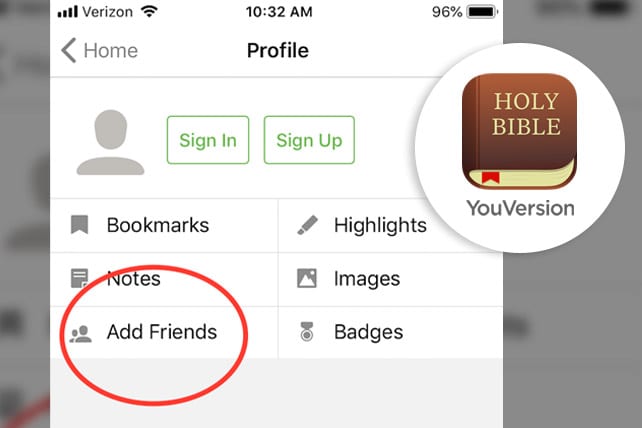Albert Mohler, President of the Southern Baptist Theological Seminary (SBTS or Southern Seminary) announced he will accept a nomination to be the president of the Southern Baptist Convention at the June 2020 Annual Meeting in Orlando, Florida. Mohler is being nominated by H.B. Charles, Jr., an SBC pastor in Jacksonville, Florida.
Mohler accepted Charles’ nomination on October 31st.
Thank you for your confidence, H.B. I would be honored to serve Southern Baptists in any way, and would do anything I can to lead and serve faithfully and well. https://t.co/2OeDngMfdI
— Albert Mohler (@albertmohler) October 31, 2019
Charles said “our times are filled with serious challenges from our culture,” in his nomination announcement. Indeed, if Mohler is elected, he will take the helm at a very interesting point in the history of the Southern Baptists. The convention is currently debating their way through numerous hot topics that the broader culture is also grappling with. Recently, things like women in leadership, sexual abuse, social justice, and the ongoing problem of racism have been debated (some would say ad naseum) on social media platforms, at conferences, and chapel sessions across the Southern Baptist world.
Where Does Albert Mohler Stand on Controversial Issues?
While it’s hard to say wholesale how Mohler may lead the convention through this particularly difficult and controversial time, a look at what he’s done and said in the past may give us a clue.
Women in Leadership
Last year, Pastor Dwight McKissic made waves we he suggested Beth Moore would make a good president of the SBC. When asked whether he thought such a thing would be permissible, Mohler said “given just the constitutional responsibilities of the president of the SBC, there’s probably no reason a woman shouldn’t serve…” However, “the actual role…has actually been pastoral for the better part of the SBC.” Mohler makes the argument that because the President of the SBC gives a “major message” to the convention each year—a message which has evolved to become more of a “preaching exhortation” than a “business report”—a woman should not serve in this position. In fact, the president is called upon to preach in several instances.
For Mohler (and many Southern Baptists), a woman preaching to men is a non-negotiable. However, if the role did not require the president to preach, Mohler sees nothing wrong with a woman occupying it.
Sexual Abuse Crisis
Earlier this year, Mohler apologized for supporting his friend C.J. Mahaney amid allegations that Mahaney and the church he founded, Sovereign Grace Ministries, covered up several claims of sexual abuse from parishioners. Mohler said his endorsement of Mahaney after the allegations came to light was hasty and ill-informed. Mohler told the Houston Chronicle:
I believe in retrospect I erred in being part of a statement supportive of (Mahaney) and rather dismissive of the charges. And I regret that action, which I think was taken without due regard to the claims made by the victims and survivors at the time, and frankly without an adequate knowledge on my part, for which I’m responsible.
When Paige Patterson lost his position as president of Southwestern Seminary, Mohler wrote a long opinion piece about the wrath of God and the “humiliation” of the SBC. While those most critical of the SBC and their negligent response to allegations of abuse see the larger problem of abuse and coverup as a conspiracy of (mostly) older, white men to hang on to power, Mohler called it “an unorganized conspiracy of silence.”
More recently, Mohler moved quickly to suspend an adjunct professor at SBTS when allegations that he initiated relationships with girls in his youth group some 17 years ago came to light on social media.
Social Justice
When John MacArthur et al published their Statement on Social Justice and the Gospel, Mohler did not sign it. At a chapel session at SBTS, Mohler laid out his reasoning for agreeing with parts of the statement while disagreeing with others. The crux of Mohler’s disagreement with the statement lies in its caricature of victims. While Mohler agrees there is a victim “culture and industry” in our society, there are also real victims that have suffered real harm. He mentioned people who have suffered child abuse, and then seen their abusers protected. He also mentioned victims of racial prejudice.
“I’m the president of a seminary established by slaveholders as a part of a Convention established to allow slaveholders to continue to send missionaries and be slaveholders,” Mohler said during the chapel session. His point being that one cannot escape the “continue reality” of racism present in our country today.
Racism in the Convention
Mohler’s pointing to racism in the chapel session is a highly controversial discussion currently going on in the SBC. At this year’s annual meeting, delegates voted to pass the resolution “On Critical Race Theory and Intersectionality” after a heated debate and multiple revisions. To some, the fact that the resolution reads “critical race theory and intersectionality should only be employed as analytical tools subordinate to Scripture—not as transcendent ideological frameworks,” points to the convention’s acceptance of critical race theory and belies a more liberal trajectory they believe the convention is on.














